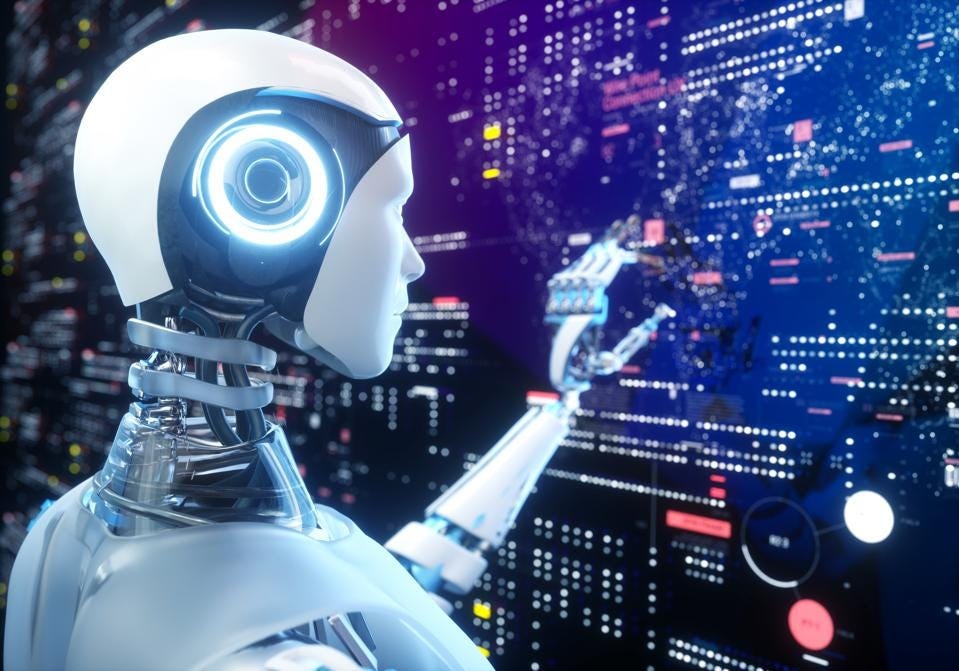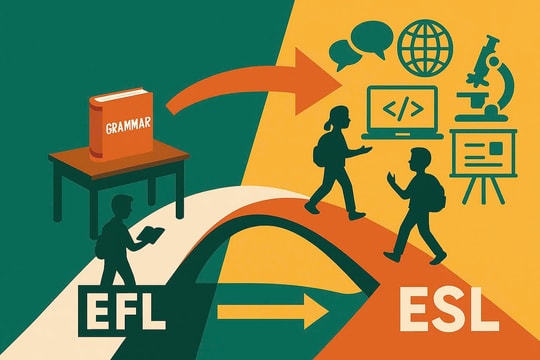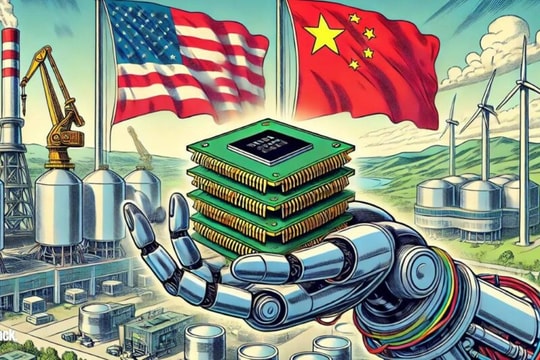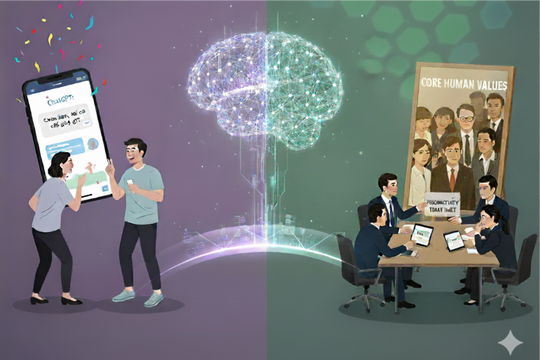5 jobs at risk of being replaced by artificial intelligence in the future
(Baonghean.vn) - With the remarkable development of artificial intelligence (AI), especially smart chatbots like ChatGPT recently, many professions will disappear in the future and workers will be eliminated.
 |
As AI continues to develop and become more intelligent, many experts are concerned that some jobs will be replaced by AI in the near future. While this is a valid concern, it is important to consider both the potential benefits and limitations of AI and its impact on the future workforce.
On the one hand, AI has the potential to automate many simple, manual, and repetitive tasks, freeing up human workers to focus on more complex and creative tasks. This potential can increase productivity and efficiency, allowing companies to compete more effectively in the global marketplace.
However, there is also a downside to the growing use of AI in the workforce. Many workers could be replaced by AI systems, leading to widespread unemployment and declining living standards. In its recent Future of Jobs Report, the World Economic Forum estimated that AI will displace about 85 million jobs by 2025.
Meanwhile, a study by global management consulting firm McKinsey & Company (USA) said that about 1/3 of workers could "give up" part or all of their jobs to robots and artificial intelligence by 2030.
The uneven distribution of AI benefits could also exacerbate existing economic and social inequalities, with workers in low-skilled, low-skilled jobs most vulnerable to displacement.
As with every major technological innovation cycle that has occurred in human history, workers in some occupations will be replaced by machines, while entirely new activities, with their attendant potential employment opportunities, will emerge.
Below are the 5 types of jobs that experts say are at the highest risk of being replaced by AI in the near future.
1. Customer service
The use of chatbots in customer service is on the rise, with many websites already using them to answer customer questions, often with human support for more complex requests. However, with recent advances in AI technology, experts believe that in the near future, customer service jobs will gradually disappear.
Gartner, a technology research and advisory firm, predicts that by 2027, chatbots will become the primary customer service channel for about a quarter of all organizations and businesses globally. Over the past decade, chatbots and virtual customer assistants (VCAs) have become essential to the strategies of a number of organizations and businesses operating in the service sector. Chatbots can enhance customer experience and generate positive emotions at a lower cost than human interactions when properly designed.
2. Financial analyst
The financial industry relies heavily on collecting, sorting, and analyzing data, which can be time-consuming and error-prone. AI can automate many financial tasks, such as risk analysis, portfolio management, and fraud detection, improving efficiency and decision-making. AI algorithms can process large amounts of data faster and more accurately than humans, allowing for faster financial predictions.
Jobs in the finance sector, such as financial analysts and personal financial advisors, that involve a significant amount of digital data manipulation could be impacted by AI's ability to identify market trends, evaluate portfolio performance, and forecast better investment mixes using various forms of data.
3. Security staff
It is believed that with advances in technology such as facial recognition and human form recognition, AI will replace the role of traditional security personnel in protecting homes and businesses. AI can monitor potential threats and even predict movements to increase efficiency in security protection.
AI can also screen video footage to detect illegal activity and address the shortage of security personnel. With the advancement of AI technology, more businesses and homes will likely choose technological solutions for their security needs in the future.
4. Writer
The development of AI technologies like ChatGPT can impact various media jobs that involve content creation, such as advertising, journalism, technical documentation, etc. AI's ability to read, write, and understand text-based data has led to the development of automated content generators.
OpenAI's ChatGPT can generate blog posts or write stories in minutes. With AI technology advancing rapidly, some experts predict that the media industry could become more automated in the future.
It has even been suggested that ChatGPT could perform tasks like writing reports more efficiently than humans. However, it is unlikely that AI will completely replace writers in the near future. This is because writers bring unique qualities like empathy, creativity, and cultural understanding to their work, which AI systems currently lack.
However, as AI continues to develop, it is possible that the role of writers may change and some tasks may be automated, but they may still play an important role in the literary field.
5. Teachers
Nowadays, students often rely on sources like Google and YouTube to find out the information they need. Some even claim that these sources provide better information and answer questions than their teachers.
With the advent of ChatGPT, teachers were concerned that students might use it to “cheat” on homework or find relevant information. While ChatGPT currently has some limitations in terms of accuracy and knowledge, proper training can improve these limitations. With proper training, ChatGPT could even be capable of teaching classes like human teachers.
Whether we like it or not, AI will eventually have an impact not just on jobs, but on every aspect of our lives. If we recognize this and build an economy that can quickly adapt to the changing job landscape, we will all be better off.
In short, for the future of work to maximize the benefits and minimize the risks from AI, policymakers and companies must collaborate and manage the transition to an AI-based economy responsibly and equitably.







.png)

